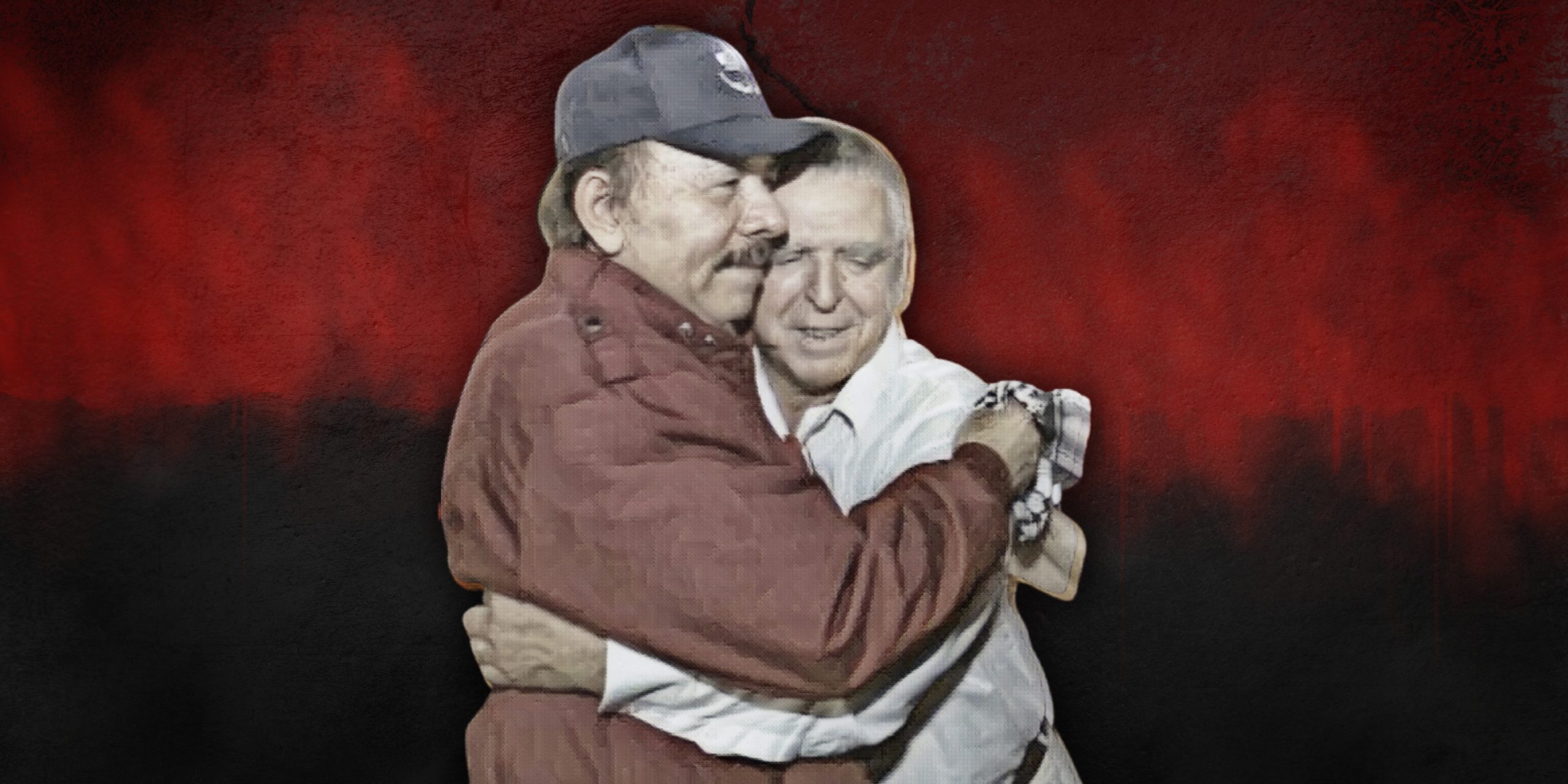Mario Firmenich, a Former Guerrilla Member from Argentina on Daniel Ortega’s Payroll
The former leader of The Montoneros, who was convicted in his country to thirty years in jail and then pardoned, is a fierce defender of the abuses inflicted by the Sandinista regime as well as a government official – as this investigation reveals. While the government strips the nationality of hundreds of Nicaraguans, it illegally keeps foreigners on the State payroll based on policies and ideology affinity.
By Nicaragua Investiga y CONNECTAS
Without the 30-year conviction on his name (he served only six years because he was granted a pardon in 1990) but always vindicating the blood shed by The Montoneros, Firmenich sat in the first row of the event next to other special guests, including Laureano Ortega Murillo (another son of the presidential couple, his father’s advisor of investment) and Salvador Sanchez Ceren (President of El Salvador between 2014-2019, accused of corruption and a fugitive of his country’s justice system).
The event gathered ministers, diplomats, magistrates, ambassadors and representatives from Sandinismo. Before the show (which lasted over four hours), the special guests toasted with champagne and feasted on a top banquet while they engaged in small talk.
Firmenich was wearing a blue jacket and beige pants. His presence in the fashion show caught people’s attention because he was not acting in the capacity of “electoral overseer”, as he was in November 7th, 2021, when he assured that Ortega’s victory was “clean” and that he was “reelected for the fourth time because the work done in his three prior presidential terms has ample and thankful social support.”
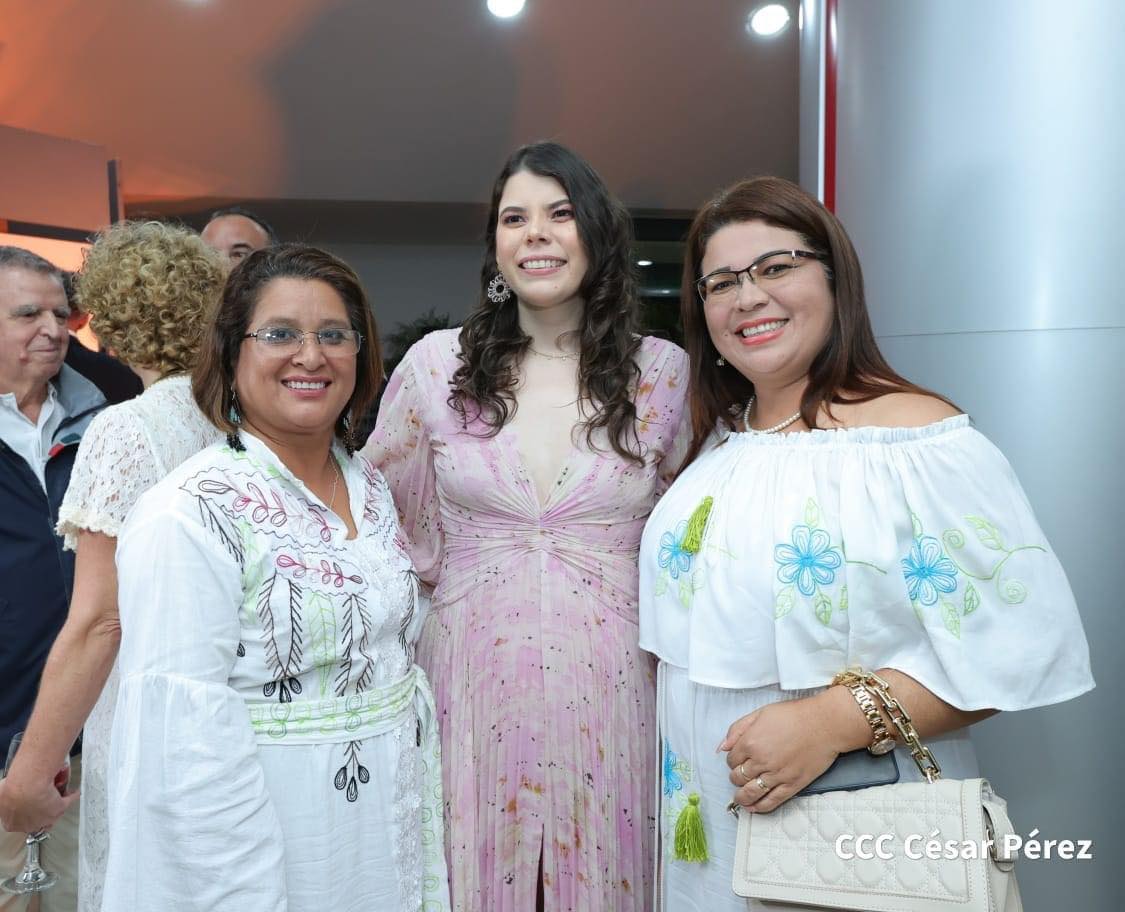
Arrested in Brazil in 1984; extradited to Argentina and sentenced to prison in 1986; and then pardoned by President Carlos Menem in 1990, the former guerrilla member is now a privileged guest of the Ortega-Murillo regime. The government that has applied a Law of Foreign Agents (Ley de Agentes Extranjeros) against tens of opponents and social organizations, putting them behind bars or forcing them to exile, and which recently arbitrarily stripped the nationality of over 300 Nicaraguans, has had no reservations in keeping a foreigner in the State’s payroll, as this investigation of NICARAGUA INVESTIGA and CONNECTAS reveals.
Mario Eduardo Firmenich, whose ideological alignment with Sandinismo dates back to the 60s, collected (at least until September 2022) a monthly salary from the Presidency of the Republic of Nicaragua. This information comes from a leak in the database of the INSS (Instituto Nicaragüense de Seguridad Social), which contains the public data of the staff employed by the State of Nicaragua and their net salaries.
While Firmenich, who is not Nicaraguan, has been given shelter, employment and security (based on a political affinity with the Sandinista National Liberation Front and for defending Ortega’s abuses), early this month, Ortega (unconstitutionally) stripped the nationality of 222 political prisoners who had been deported to the United States and he accused them of “treason” for having criticized his government and for demanding a democratic change in their country. Moreover, he started a legal process and dispossessed the assets of 94 people who were also affected by this repressive action.
But Firmenich is not the only foreigner to be welcomed by Ortega as a national, unlike the Nicaraguans whose nationality has been stripped. Aside from Sanchez Ceren, the privileged short list includes another former Salvadoran President: Carlos Mauricio Funes Cartagena, a fugitive of his country’s justice and in asylum in Nicaragua since September 2016.
Two Libyan nationals are also in this circle of new “Nicaraguans”: Ebtisam Ahmed Elmashi, a woman nationalized in 1997 (as reported in La Gaceta) who has held several diplomatic positions; and Mohamed Mohamed Lashtar, nephew of the deceased dictator Muamar El Gadafi and current ambassador of Nicaragua in Kuwait.
Ramn Antonio Fregoso Toledo is another “foreign agent”. A Mexican who was granted the Nicaraguan citizenship in September 2020 (according to La Gaceta), he gets his salary from the INTA (Instituto Nicaragüense de Tecnologia Agropecuaria). He is a journalist and took part in the documentary La ofensiva final, which depicted the last 63 days of the Somoza dictatorship in 1979.
On the other hand, Cuban Argimiro Ojeda Vive got his Nicaraguan citizenship on March 9th, 2022, according to La Gaceta. He gets his salary from the INAC (Instituto Nicaragüense de Aeronautica Civil) and his position is as “technical advisor” since 2013, as per his LinkedIn profile. He was the vice president of the IACC (Instituto de Aeronautica Civil de Cuba) between 1988 and 2012.
Firmenich’s Price
Back to Firmenich. In the document that was made available for this investigation, it is stated that he is an employee of the Presidency of Nicaragua, and that his net salary is 133,710.59 cordobas (3,735.63 dollars).
Although his position has not been made official in La Gaceta (Nicaragua’s official gazette), official media La Voz del Sandinismo and Radio Uraccan Siuna published an article in September in which the Argentinian is featured as a “planning advisor of the Presidency”.
Firmenich is featured alongside Bosco Castillo, an official of the Ortega regime; both were visiting several productive initiatives in the municipality of Bilwi, Puerto Cabezas, in the Nicaraguan Caribbean.
According to the database of the INSS, the former guerrilla member resides in an exclusive area of Managua: Residencial Villa San Angel, Casa 0302. This confirms that Nicaragua is his new adopted country: his last known whereabouts was Spain, where he had lived since 1999.
A promotional video of the residential complex where Firmenich lives claims that a property there can cost up to 105,000 dollars (3,808,350.00 cordobas). The model house has a parking area, a big living room, a kitchen with a pantry, three bedrooms with air conditioning systems and their respective bathrooms, plus two more bathrooms, a large backyard and a small apartment.

Aside from his past as a criminal convicted by his country’s justice system for the murders of businessmen Francisco Soldati and police officer Ricardo Duran, for the attacks against former Minister Juan Alemanno and political leaders Francisco Canciller and Ventura Belford Miño, there is yet another blemish that affects Firmenich’s role in the Nicaraguan State: it breaches Article 12 of the Law of Immigration and Alien Status, the fact that he does not have a country identification document means he is not able to work and collect a salary.
This law stipulates that foreigners must apply for a residence identification document (be it temporary or permanent) which needs to be issued by the Alien Status Directorate “in a term of thirty working days from its request.” It is unknown if Firmenich has requested this document.
This investigation contacted the former Argentinian guerilla member via telephone and email, but he didn’t reply. We also contacted his son, Facundo, who lived with him in Spain and currently resides in Bolivia.
“Foreigners, including dangerous people with disreputable trajectories such as Firmenich, getting high salaries paid for with the money of with Nicaraguans’ taxpayers can only be considered an arbitrary and illegal act that is connected with dark ideological interests of totalitarian nature,” said the political analyst and former diplomat Jose Davila Membreño, who sustains that the “regime is rewarding these corrupt and murderer foreigners who are appointed in top government positions for being servile and having a perverse ideological fellowship.”
“Nicaragua has been pointed at by Transparency International as one of the most corrupt countries in Latin America, and it is only fitting that the public payroll includes corrupt officials and employees, whether they are nationals, nationalized foreigners or foreigners,” asserted Martha Patricia Molina, Nicaraguan lawyer of the Observatorio Pro Transparencia y Anticorrupcion.
“These positions are more political than functional, in other words: they get salaries, benefits and handouts in exchange for nothing,” Molina says and she adds: “At public level, the State must contract a workforce that adheres to the Ethics Code of each institution and to the Law of Probity.”
Ortega’s Electoral Overseer
The Sandinista regime accredited 232 “electoral overseers” from 27 countries, including Firmenich, with the aim of “getting a firsthand account” of the last presidential election, back in November 7th, 2021, in which Ortega clinched his fourth consecutive term. These elections “failed to abide by the essential elements of democracy” and the regime “opted for the road of authoritarianism,” read a report issued by the OAS (Organization of American States).
Firmenich was photographed the Sunday prior to the election with several “electoral companions” who took part in meetings with politicians close to Ortega to get to know “government programs” and the electoral process. The former guerrilla member was also photographed with Orlando Gomez, who served as ambassador of Nicaragua in Argentina at the time.
In the subsequent municipal elections that took place on November 6th, 2022, the Argentinian did not serve as “electoral overseer”, although it was known that the regime invited people from different countries to “monitor” the process from the Electoral Court (controlled by pro-government officials) which announced the victory of the Sandinista National Liberation Front in the country’s 153 mayor’s offices.
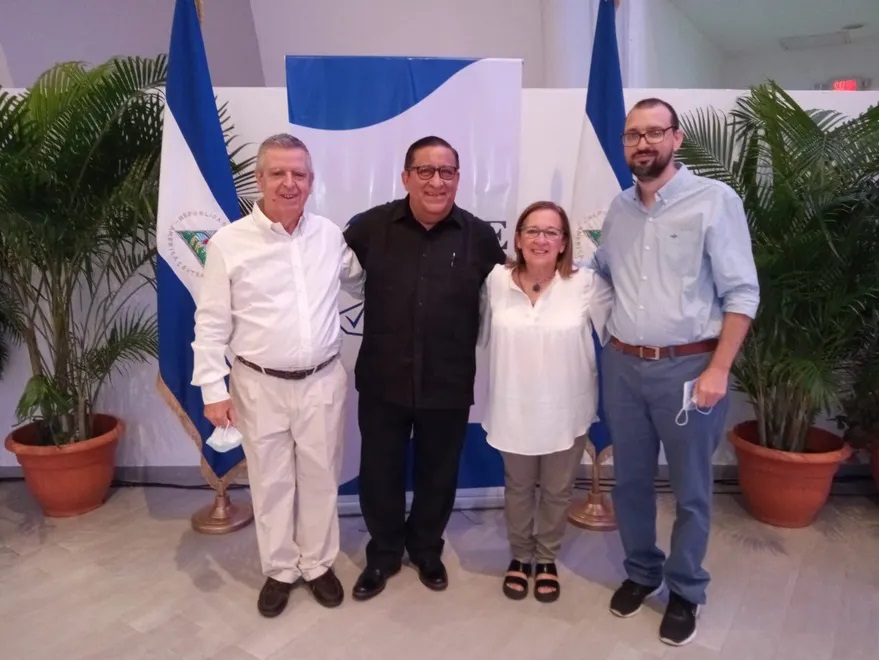
Despite national and international rejection faced by Ortega, Firmenich has defended his regime and has justified the imprisonment of Nicaraguan opponents. “Preventive jail time for laundering money that funds the American meddling in the elections is consistent with the law,” he wrote in a lengthy article entitled “13 realities that explain Nicaragua’s situation”, published in July 2021 in the website of Canal 6, an official outlet controlled by Ortega’s children.
In the article, he called the Nicaraguan opposition a “bag of cats” claiming that they lack “major social representativeness.” He lashed out at the Church, which has been targeted by Ortega as well: “The most conservative sectors of the Catholic Church openly drove the attempted coup d’état of 2018 from their pulpits,” he pointed out.
Before settling in Nicaragua, Firmenich (74), was a teacher of economics at Universitat Rovira i Virgili in Tarragona, Spain, from which he eventually went into retirement: “He retired three or four years ago,” an employee of the Catalan education institution said on the phone. So, in addition to the salary he gets in Nicaragua, he also collects a retirement pension in euros.
“Firmenich has been a shady guerrilla leader who lacks minimum credibility in Argentina. He doesn’t speak in the country because nobody will listen,” said Julio Barbaro, who was a representative in the Argentine Chamber of Deputies for two terms, as well as an official in the presidential terms of Carlos Menem (1989-1999) and Nestor Kirchner (2003-2007).
“He has nothing to give. No outlet here would interview him or even consider him,” said the political scientist and writer, who is close to former guerrilla leaders despite not having been part of The Montoneros – which was the greatest in Latin America in the agitated 70s.
Regarding the tight relationship between Firmenich and Sandinismo, Barbaro was adamant: “The situation in Nicaragua is sad and it’s a step backwards in politics. For me, Nicaragua is not a democracy. Therefore, it is not strange at all to have an undemocratic man such as Firmenich join forces with a dictator such as Ortega”.
The political relationship of the former guerrilla member with Nicaragua goes back to the violent 70s. In 1978, The Montoneros undertook actions to financially support the Sandinistas in their final offensive against the dictatorship of Anastasio Somoza Debayle. This was revealed by Humberto Ortega, former guerrilla member and brother of the Nicaraguan President in his book entitled “La Epopeya de la Insurreccion”.
Humberto, who was the chief of the Nicaraguan Army (1979 – 1995), recounts that in Puesto Central de Palo Alto (a complex in Costa Rica) he met with Fernan Cienfuegos, the leader of a guerrilla in El Salvador, “who gave us millions of dollars not before completely sympathising with my insurrectionary theses.”
In that same place – the author continues – he had a “relationship with the leaders of The Montoneros, Argentinians Mario Firmenich and Fernando Vaca Narvaja, who made it possible for us to get an additional million dollars.” Following the victory of the Sandinista Revolution, which brought to an end more than 40 years of Somoza dictatorship, the leaders of The Montoneros visited Nicaragua in 1979.
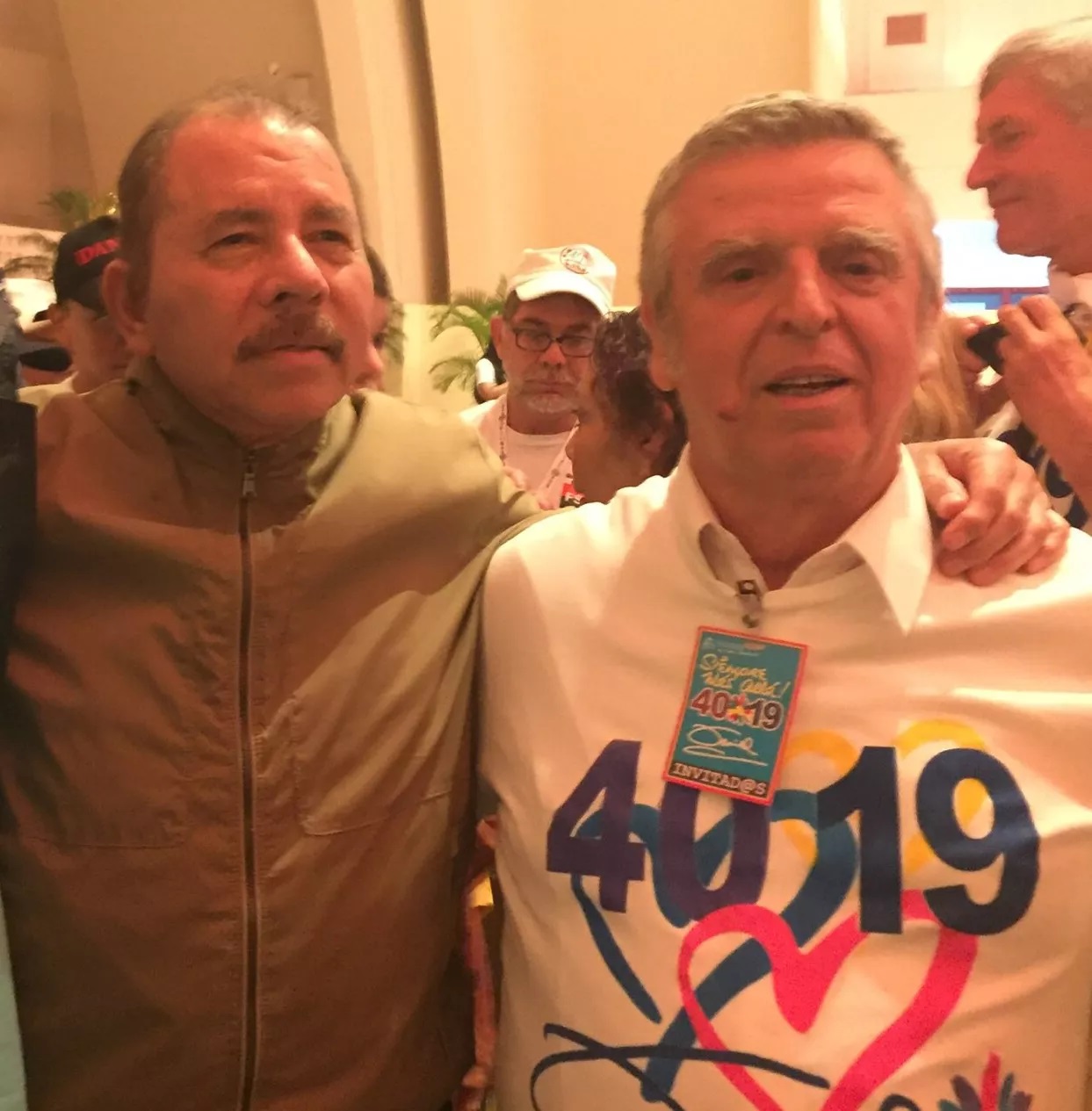
In addition to the prior two, a third survivor of The Montoneros is Roberto Perdia. He was contacted by this investigation but he declined to comment. Instead, he asked us to provide him information about NICARAGUA INVESTIGA and CONNECTAS to check their “audience”. We asked him via SMS if he had information about Firmenich living in Nicaragua, he simply responded: “I don’t know.”
But the leaders of The Montoneros were hardly the only Argentinian guerrilla members that became fascinated by the Sandinista Revolution. Members of the ERP (Ejercito Revolucionario del Pueblo), of Trotskyist background, were also involved in toppling Somoza and collaborated in the rise to power of the Sandinista National Liberation Front.
For instance, Enrique Gorriaran Merlo, who fought the Somoza dictatorship alongside Sandinistas in Nicaragua and who commanded the Argentine guerrilla commando team that murdered Somoza in Asuncion on September 17th, 1980, after studying his movements in the capital city of Paraguay. Gorriaran Merlo died in 2006, his daughters, Adriana and Cecilia Gorriaran Sivori, have lived in Nicaragua for several decades.
Cecilia Gorriaran was the wife of Alberto Mora, a Sandinista agitator who conducts a TV program in Canal 4, an official outlet controlled by the sons of the Nicaraguan President. Last year, she was implicated as alleged “lender” of Mora in a public tender amounting to 13,775.33 dollars paid by ENATREL (Empresa Nacional de Transmision Electrica) for the item of “advertising”.
Firmenich’s Dark Past
It is clear that Firmenich is a privileged guest of the government of Nicaragua, and as such, he frequently attends political events. In July 2019, for instance, he attended the 40th anniversary of the Sandinista Revolution. That time, he was photographed hugging Daniel Ortega. He also took part in the President’s last inauguration on January 10th, 2022, with only a select few foreign representatives and diplomats, due to the international rejection of the current Nicaraguan regime.
Firmenich’s story is full of political violence. He was one of the founders of The Montoneros and its top leader. This group, followers of the three-time President Juan Domingo Peron (a character that left his mark on Argentinian politics of the 20th century), was responsible for numerous kidnappings and murders in Argentina in the 70s.
One of his crimes (the one with the greatest social impact) was that of former Argentine dictator and member of the military Pedro Eugenio Aramburu in 1970, he was one of the masterminds and executors. After this crime, The Montoneros desecrated his grave in the cemetery and stole his corpse; this was later described in a public testimony in 1974, in the article “La Causa Peronista: ¿Como murio Aramburu?”.
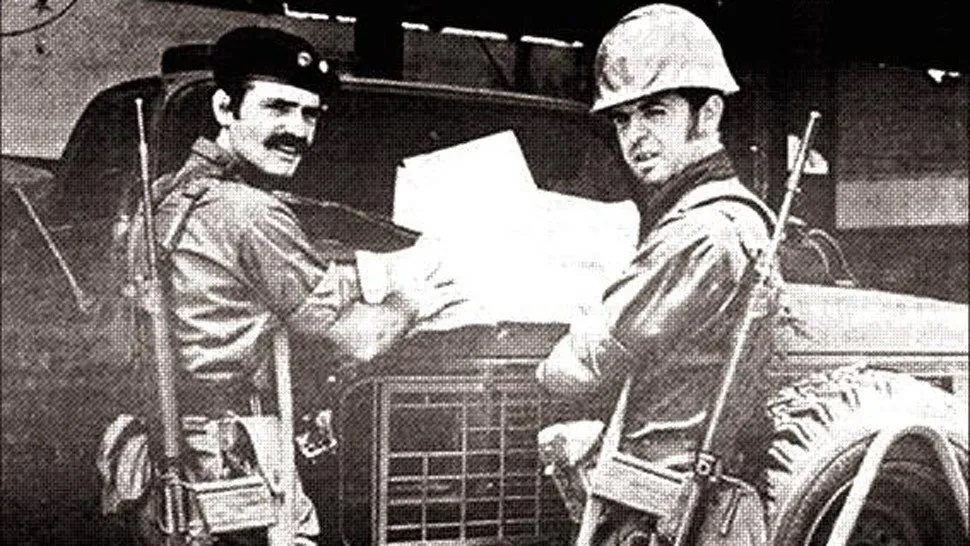
The Montoneros is also infamous in Argentina for having kidnapped brothers Juan and Jorge Born (owners of the most powerful multinational company in the country) in 1975, in what has been dubbed as the “the most expensive kidnapping in history”. The organization, at the command of Firmenich, requested a ransom of 60 million dollars at the time, which helped the guerrilla group to remain operating throughout the brutal repression orchestrated by the last military government starting in 1976.
Following that coup d’état, Firmenich went into exile along with the other members of the leadership of The Montoneros. Ever since, he has been associated with different figures of international guerrillas: he was photographed with Yasser Arafat in Palestine; he was in Cuba, Lebanon and the Soviet Union. He made his way through Mexico and then visited Nicaragua, as stated before, during the victory of the Sandinista Revolution.
In 1983, democracy made its way back to Argentina; one year later, Firmenich was arrested in Brazil and he was sentenced to 30 years in jail by the Federal Chamber of Buenos Aires in 1986.
However, he received a pardon by the then President Carlos Menem, with the other leaders of The Montoneros and of the military dictatorship, through a decree published on December 29th, 1990. When he left jail, Firmenich quit politics to get into education and academic research, first in Argentina and then in Spain, a place he recently abandoned in pursuit of a better, more comfortable life, surrounded by old Nicaraguan comrades in the city of Managua.
“Firmenich is despicable, even by guerrilla standards. When the other members were disappeared (by the military), he was part of a leadership that took shelter in Europe, enjoying life. He can’t give anything because he has nothing to give,” Barbaro concluded.
In one of the few interviews he has given in his life, he spoke to a TV outlet in 1992 (two years after being pardoned for his crimes), Firmenich claimed that he intended to abide by a Biblical saying: “Thou shalt not tempt the Lord thy God”. He added that his trajectory had made him cautious and rigorous about his safety, which is evident: he carries the burden of having murdered and kidnapped people in Argentina.
“I didn’t visit my family for years, I didn’t go to the movies or football stadiums,” the former guerilla member said. When the journalist asked about what he did for a living, he said that he was in “trade”, but he didn’t specify the type of business because people were afraid of him. “If I reveal who I’m in business with, perhaps that person will want to stop doing it,” he added. He still applies that “philosophy” nowadays, his life being veiled by silence and safety, sponsored by the Nicaraguan regime in a luxurious neighborhood in Managua.

